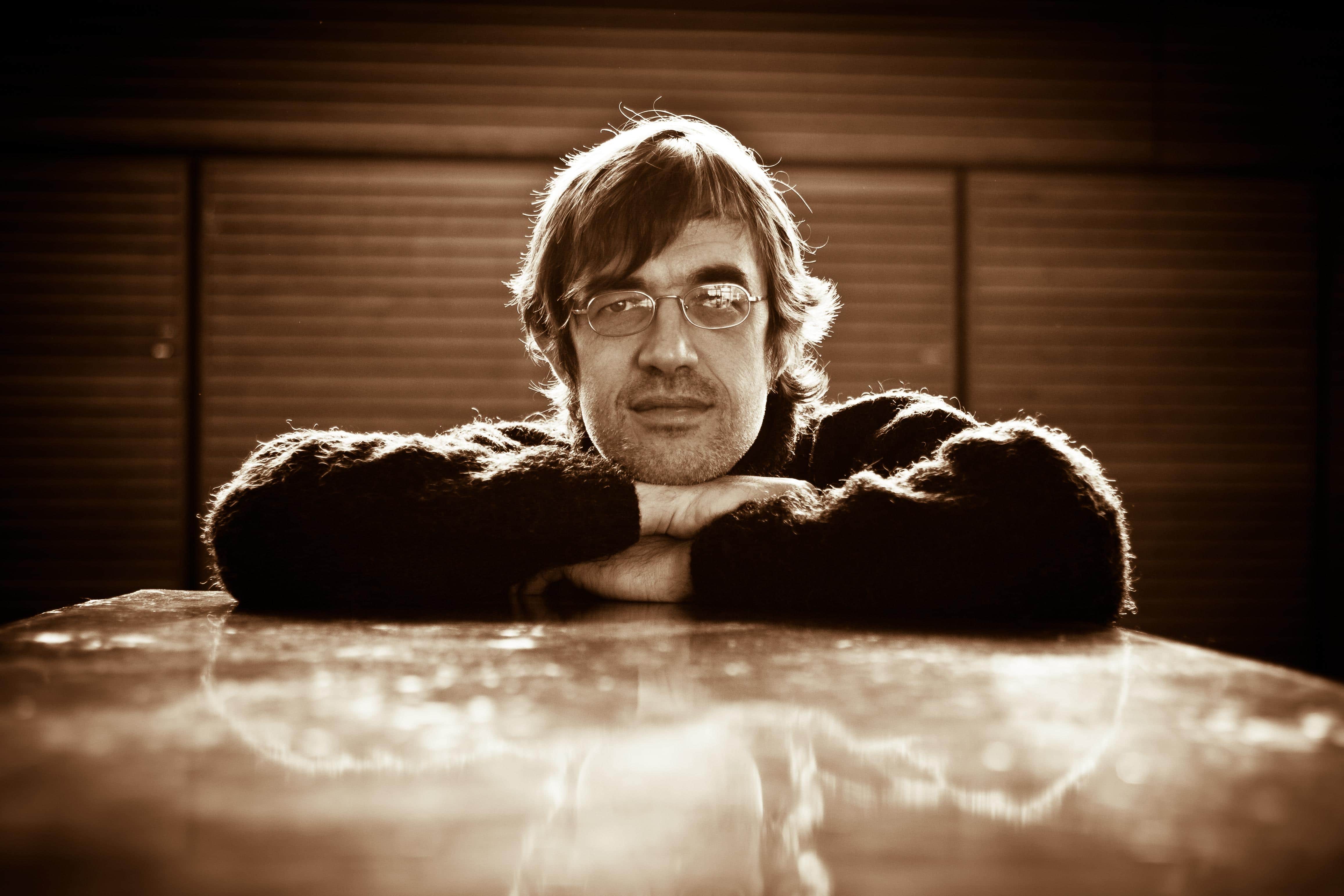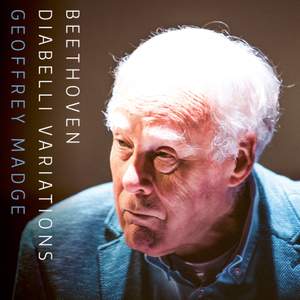There are other instances of this. Schoenberg abandoned his second Chamber Symphony and returned to it 30 years later. And Schubert completed the first twelve songs of Die Winterrreise before he even discovered the poems of the other twelve.
Beethoven. Diabelli Variations. Op. 120
Collapse
X
-
Also on QOBUZ, I was glad to find. Do you have the discs? If so, how useful is the booklet and what does the DVD present?Originally posted by Mandryka View PostAs everyone knows, Beethoven wrote some variations in 1819, and then left the project for a few years. The 1819 version -- if it can be called that -- is on record here on Track 9 disc 1 here
It's very stylishly and elegantly and expressively and intimately played by Jan Michaels, a new name for me, but I intend to explore some of his other recordings.
 He realized different complete cycles: all Beethoven sonatas, all pianoworks of Schoenberg, Webern and Berg and the complete chamber music with piano of Johannes Brahms.
He realized different complete cycles: all Beethoven sonatas, all pianoworks of Schoenberg, Webern and Berg and the complete chamber music with piano of Johannes Brahms.
I can't help but think that The Diabelli Variations is like AoF in a way, in that the composer put the project aside for a considerable amount of time before returning to it. In the case of AoF I always feel that the best music came later, and recordings which just cover the earlier fugues leave out my favourite music.
I don't know if I feel like that about the Diabelli Variations.
Comment
-
-
Agreed. I've never felt the need to explore elsewhere. He carries the listener (well THIS listener) from start to end in one magnificent structure. I bought the Onyx too but think the earlier Phillips superior.Originally posted by Lordgeous View PostStephen B Kovacevich (Philips) is magnificent, much prefered to his later version, though that's also pretty good. Wonderful piece, following Beethoven's train of thought as the work progresses is fascinating.Last edited by Lordgeous; 06-10-22, 18:35.
Comment
-
-
Thanks. It turns out that the QOBUZ version only has short clips from the new items, though the 1819 version with Jan Michiels has all 29 minutes and 27 seconds odd. Very strange. I see that Jan Michiels has also recorded the complete Op. 120, along with a few by other composers, for MDG. I will investigate that, too.Originally posted by Mandryka View PostI'll send you a PM.
I came across it because I've started to explore David Gorton's music. I haven't heard all the new variations yet, but so far I very much enjoyed the one by Bart Vanhecke.
Comment
-
-
My ears started to prick up in var 6. Madge’s idea seems to be that one of the strengths of the music is in the counterpoint, and that’s interesting I think. For me this one was put in the shade a bit by Uchida’s release, Madge’s came out in Autumn 2022 when I was thinking most about Uchida. That was a shame, because we have something original here. It’s a “thoughtful” interpretation - he definitely does not see the music as a vehicle for displaying the piano player’s skills, or for wowing the listener with speed or colour. It’s streaming everywhere.
If anyone has the booklet - is there anything interesting in it?
Comment
-
-
I hadn't heard of him before but look forward to streaming his performance.Originally posted by Mandryka View Post
My ears started to prick up in var 6. Madge’s idea seems to be that one of the strengths of the music is in the counterpoint, and that’s interesting I think. For me this one was put in the shade a bit by Uchida’s release, Madge’s came out in Autumn 2022 when I was thinking most about Uchida. That was a shame, because we have something original here. It’s a “thoughtful” interpretation - he definitely does not see the music as a vehicle for displaying the piano player’s skills, or for wowing the listener with speed or colour. It’s streaming everywhere.
If anyone has the booklet - is there anything interesting in it?
Comment
-
-
Tends to be associated with the works of the likes of Busoni and Sorabji.Originally posted by gradus View PostI hadn't heard of him before but look forward to streaming his performance.
Comment
-
-
That may have been true, but I’m not sure it’s true any more. His Art of Fugue is well worth hearing, I can’t think of a more interesting one on modern piano. And I just noticed he’s released a Goldberg Variations too.Originally posted by Bryn View PostTends to be associated with the works of the likes of Busoni and Sorabji.
http://www.sorabji-archive.co.uk/performers/madge.php
Comment
-
-
As the article notes, he's a hero to Skalkottas and Skalkottians, with all three Piano Concertos recorded for BIS - including the epically demanding 65-minute 3rd with Wind Orchestra....... (hand on heart, not my first choice for the work, but the point is he did it and did it first....)...Originally posted by Bryn View PostTends to be associated with the works of the likes of Busoni and Sorabji.
http://www.sorabji-archive.co.uk/performers/madge.php
Comment
-
-
... as opposed to Gerrard Williams, of course! (q.v.)
I've always found the Diabellis a bit off-putting compared with the sonatas. Is it the length or the variation form? I'm not fond of Brahms/Handel for the samw reason. But they ceratnly attract pianists: Katchen, Kovacevitch, Anda and Cooper (Imogen) have all done superb versions .
Comment
-





Comment